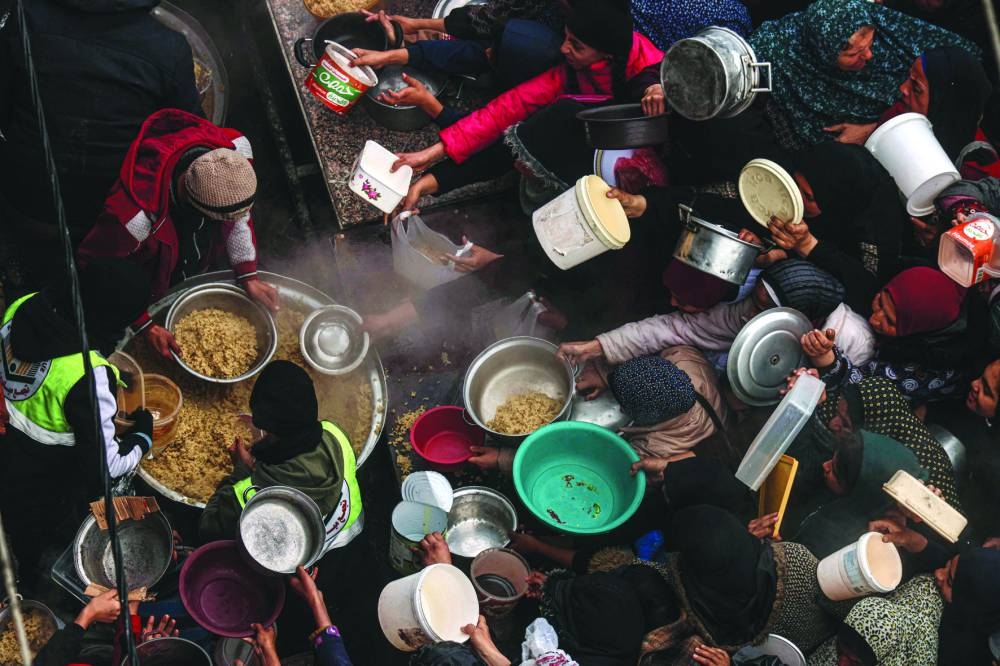The UN voiced fears yesterday about worsening conditions in southern Gaza, saying a surge in people seeking safety in Rafah had made the town a “pressure cooker of despair”.
The United Nations’ humanitarian agency OCHA said it was deeply concerned about the escalation of hostilities in Khan Younis, which had resulted in increased numbers heading further south to Rafah in recent days.
“Most are living in makeshift structures, tents or out in the open,” OCHA spokesman Jens Laerke told a briefing in Geneva.
“Rafah is a pressure cooker of despair, and we fear for what comes next.
“Khan Younis has also come increasingly under attack, and it’s been shocking to hear about the heavy fighting in the vicinity of the hospitals, jeopardising the safety of medical staff, the wounded and the sick, as well as thousands of internally displaced people seeking refuge there.” Of the people rushing southwards, Laerke said: “Are they truly safe? No. There’s no safe place in Gaza; also not in Rafah. Every week we think it can’t get any worse. Well, go figure: it gets worse.” Richard Peeperkorn, the World Health Organisation’s representative for the occupied Palestinian territories, said Rafah used to be a town of around 200,000 people but the area was now sheltering more than half of Gaza’s 2mn-plus population.
“When you hear about potential attacks, it should not happen...Rafah should not be attacked,” he said, via video-link from Jerusalem.
The war in Gaza was triggered by Hamas’s October first week storming of Israel.
After the storming, Israel launched a relentless military offensive that has killed at least 27,131 people in Gaza, mostly women and children, according to the health ministry in the Hamas-run Palestinian territory.
The UN’s top court last Friday said Israel must facilitate “urgently needed” humanitarian aid into Gaza.
Laerke said that over recent weeks, “I do not detect any improvement whatsoever in the humanitarian situation, anywhere in the Gaza Strip.” Peeperkorn said that the WHO planned 15 missions to northern Gaza in January, of which three were facilitated, while four of 11 planned missions to the south were facilitated. He called for humanitarian corridors.
Of the 36 hospitals in Gaza, 13 are partially functioning and two others are minimally functioning.
Peeperkorn said an estimated 6,000 people with war injuries and 2,000 people with other medical conditions needed evacuating to neighbouring Egypt but only 1,243 patients had so far been able to do so.
“That a pittance,” he said. “It’s really incredibly frustrating that this is not happening.” He said the WHO was extremely concerned about malnutrition in Gaza and the threat of famine.
Peeperkorn noted that Gaza had been relatively self-sufficient in meat, poultry, eggs, fish, fruit and vegetables, but “that whole industry has gone”.
Ahmed Dahir, head of the WHO Gaza sub-office, speaking from Gaza, added: “People are looking visibly weak and thin from lack of nutrition. Everyone we speak to is hungry.
“People are searching for food and safety; both are almost impossible to find.”

Palestinians receive food rations at a donation point at a camp for internally displaced people in Rafah in the southern Gaza Strip, yesterday.
